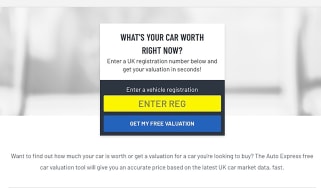PCP (Personal Contract Purchase) car deals explained
PCP deals are a popular way of buying cars because they can be very flexible. Here’s how they work…

PCP deals (Personal Contract Purchase) are a very popular type of car finance, accounting for around three-quarters of all new car sales in the UK. With the benefits of low monthly payments and some flexibility to term mileage and length, these deals offer a good way of getting behind the wheel of a new model, even if you won’t actually own the car at the end of the agreed term.
Before putting down a deposit on a shiny new car, it's worth understanding how PCP works, and how it differentiates from Hire Purchase (HP), Conditional Sales (CS), or leasing.
What is a PCP?
PCP or Personal Contract Purchase deals consist of three main parts:
- The initial deposit: This is how much money is put down at the start of the contract. A dealer or manufacturer may make a contribution towards this, and the higher the deposit you can afford, the lower your monthly payments will be.
- Monthly payments: Alongside the deposit, monthly repayments pay off the car’s predicted depreciation over the duration of the contract.
- Final payment: At the end of your contract you can either return the car, or make the final ‘balloon’ payment if you decide you want to own it outright.
The final payment amount is decided by the finance company and is based on an estimate of the car’s value at the end of the contract period. This is also referred to as the Guaranteed Minimum Future Value (GMFV).
Typically, PCP deals include lower monthly repayments, typically low interest rates and flexible terms – however, this doesn’t always make a PCP the best deal, and it’s important to understand your obligations. Reading the small print could uncover severe financial penalties for damage to the car, while you’ll also be charged extra for every mile above the pre-agreed annual mileage cap.
It may sometimes be cheaper to take out a hire purchase agreement instead, or a personal bank loan. Ultimately, you need to decide what the car’s going to be used for, what you can afford and whether you’re likely to want to have a new model at the end of the agreement, or stick with what you’ve got.
Still, PCP deals are proving popular with UK motorists, and in recent years have fuelled the boom in UK consumer credit. That's because big manufacturers such as Ford, Nissan, BMW and VW have the financial clout behind them to make PCPs affordable and available to more buyers looking to change their car for a new one.
With so many dealers offering PCPs, there will certainly be one to suit your next new car purchase, whether you're buying a supermini, crossover, hot hatch, estate, SUV or an electric car. You can even get PCP deals on used cars, which will make your money go even further, and are increasingly common as manufacturers struggle with new car stock issues due to the semiconductor chip shortage and supply chain problems. Like all types of credit, it’s beneficial to understand the advantages and disadvantages of using PCP. Flexible terms and the guarantee of a car’s value at the end of the deal are appealing, but dealers also benefit from PCPs, because they are designed to incentivise owners to stay with the same brand and choose a newer model every three years or so.
A PCP finance deal will see buyers paying instalments that cover part of the cost of a new car – usually around a third of the list price – which means that these monthly outgoings will be lower than if you take out a loan to buy a car outright.
If you'd like to own the car at the end of the PCP, then you’ll need to stump up a substantial final payment – the Guaranteed Minimum Future Value (GMFV) payment – to take the keys. This is where PCP differs from Conditional Sales or Hire Purchase agreements, as HP or CS won’t require such a hefty final payment, so if you're looking to buy a car to keep for the long term, then a PCP probably isn't the right kind of finance for you.
However, if you must have the latest car to keep up with the neighbours, then a PCP can make a lot of sense. You'll have a brand-new car on your driveway every three years or so, and because you're not buying outright, you can get a bit more car for your money than you'd be able to get by taking out a conventional loan. A canny PCP provider will do everything they can to ensure that your car’s value at the end of the PCP term will be a little higher than the GMFV payment required to buy it outright.
This difference between the balloon payment and the car's value can then be used to help reduce the deposit you will pay on the next car the dealer will line up for you when the current PCP runs out.
This is ideal if you want to drive away in a car from the same manufacturer, although isn't great if you've had a bad experience with the manufacturer and want to walk away. You can't take this cash away and spend it elsewhere – it's just there to sweeten any future PCP you may want to sign up to.
If you do walk away, that's it – no car, no cash back, but at least you don't have to cover the final balloon payment. Once the monthly payments stop, that's it, you're back to square one. The only outstanding payments there may be at this stage will be if you've exceeded the mileage allowance for the term of the PCP, or if there is damage to the car that will need repairing.
A PCP agreement can be a good way of owning a car for a short term, then if your circumstances change, you don't have to worry about the financial burden any more once you've handed the car back. But then you won't have the car as an extra bargaining chip when it comes to arranging a deposit on your next car.
Your PCP questions answered
What does PCP mean?
PCP stands for Personal Contract Purchase and it’s one of the most popular forms of car finance available to buyers.
PCP deals are particularly flexible, with buyers able to spread their payments out in a way that suits them. For example, you can pay a larger deposit in order to reduce your monthly payments.
How does PCP work?
When you first sign up to a PCP deal, you’ll agree with the dealer how long the contract will last and be given a Guaranteed Minimum Future Value (GMFV).
You’ll then pay a deposit, typically around 10 per cent of the value of the car, although this is negotiable. If you’re taking out a PCP deal on a new car, the manufacturer may make a deposit contribution to help you with this.
Then there are your monthly payments, which you typically make over a 36 or 48-month period. Once you reach the end of the contract, you’re faced with a choice between giving the car back – subject to extra charges for any damage or excess mileage – or keeping it permanently. If you wish to keep your car, you will have to make a final balloon payment to cover the rest of the vehicle’s value.
What are the advantages of PCP?
With a PCP deal, customers will find themselves paying less per month than they would on an equivalent HP contract, for example, plus they’ll have the option to keep the car at the end of the contract.
If you want to take ownership of the car at the end of the term, PCP will often prove more expensive than hire purchase finance deals, but if you want to hand the car back or trade in for an all new model, as most PCP customers do, it's a good option.
The Guaranteed Minimum Future Value eliminates concerns about the car’s value at the end of the contract, plus some dealers may offer servicing and warranty packages as part of a PCP deal.
Are there any risks involved in PCP car purchases?
The inherent risk of any form of finance purchase is that, after signing up to it, you may experience a change in personal circumstances – such as loss of employment – that means you can no longer afford to make your payments.
Fortunately, the Financial Conduct Authority requires that finance providers be fair to customers in this scenario. If you are struggling to make your payments, therefore, the best thing to do is to contact your finance provider and discuss the best way to move forward with them.
Manufacturers push PCP, so interest rates are often low, but they also set mileage limits with an excess mileage charge applied if you exceed them, usually at a pence-per-mile rate. What's more, you'll need to maintain the car in accordance with the manufacturer’s service schedule. While that's good practice anyway, if the car is damaged and you return it at the end of the PCP deal, the dealer can mark down its value.
What is Guaranteed Minimum Future Value (GMFV)?
When you set up a PCP deal, the dealer will give you a 'Guaranteed Minimum Future Value' for the car. The GMFV is the minimum amount the car will be worth at the end of the agreement. So if the car unexpectedly drops in value, you'll be protected. And if the car happens to be worth more than the GMFV at the end of the PCP, you can use the equity as a deposit in your next deal.
If the car is worth more than the GMFV, you can use any excess payments you have made towards its depreciation to reduce the deposit on a new vehicle. If the car is worth less, it’s the lender’s problem – you can simply hand it back.
Click the links below to get full guides on each of the key car finance options or find out how much your car is worth with our free valuation tool…










